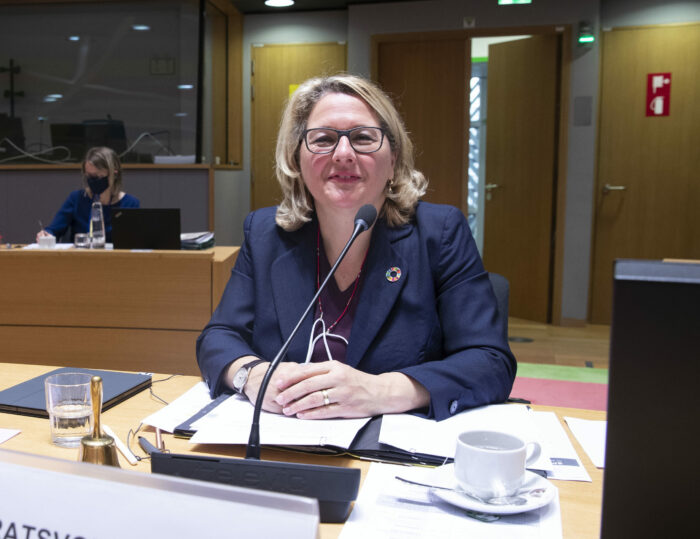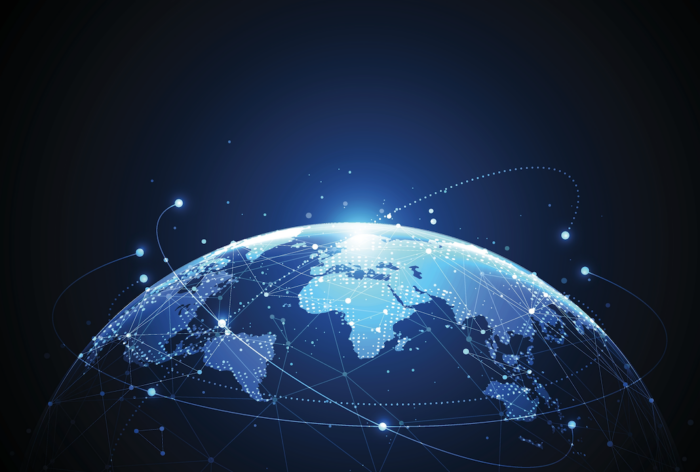The Progressive Post
Aligning the challenges of our time
Digitalisation and climate change are the two global challenges of our time. Megatrends, tasks of a generation, top-level priorities – there is no shortage of buzz words to describe them. The next German government will be judged by how successfully it tackles these two challenges.
Germany plans to be climate neutral by 2045. The German government adopted and enshrined this target into law in the Climate Change Act. The devastating floods and forest fires this summer were further proof that climate action is about securing our future. Discussions at the UN Climate Change Conference currently taking place in Glasgow are also addressing how to achieve this.
Reaching climate neutrality by 2045 is an enormous challenge. But at the same time it is an enormous opportunity to shape the future. So it is only logical to closely align climate neutrality with another major trend that has long become part of our everyday lives: digitalisation.
How can we ensure that these two developments are mutually beneficial and not at odds with one another? How can the digital transformation help us drive forward the green transformation of the economy and society?
I believe that three aspects are crucial:
- Digitalisation must be sustainable and its environmental impacts minimised
The rapid spread of digitalisation in some cases has significant impacts on the environment. We have to minimise these impacts. In other words, we have to prevent old coal-fired power plants from being reactivated to produce bitcoins, data centres from consuming huge amounts of electricity and mountains of electric and electronic waste from being generated.
To this end, in spring last year I presented a Digital Policy Agenda for the Environment for Germany. It contains strategic targets and principles for digital transformation in harmony with the climate, nature and the environment. It also describes 70 specific measures. I have already launched several of them, others are still in the planning stages.
One key project for our future is the digital product passport. This digital passport will contain all information about a product from manufacture to disposal at a glance. Consumers can use this as a basis for more informed consumer choices. At the moment we know how efficient our fridge is but not where, and under what conditions, our smartphone was produced. And often we don’t know the best way to use our phone to ensure it lasts longer and to keep energy consumption as low as possible. The product passport aims to change that. After all, one important step towards greater energy and resource efficiency is transparency about the product itself.
- Digital technologies and AI must support environmental protection and climate action
If digital technologies and AI are energy- and resource-efficient from the start, they offer enormous opportunities for climate action and the energy transition. German’s Federal Environment Ministry recently commissioned the Wuppertal Institute to carry out a study on the very topical and much debated issue of blockchain technology. The finding was that blockchain applications are better than their reputation would suggest and can make a valuable contribution to climate action and environmental protection.
One very practical area of use for blockchain is to drive decentralisation of the electricity market. If a large number of small and flexible power producers – for example homeowners with solar panels on their roofs – can sell directly to consumers on the electricity market, it makes renewable energies more attractive and can give a powerful boost to the energy transition. Blockchain technology can help organise this aspect of the market while taking account of grid stability and supply security, driving forward the green transformation. This technology is also suited to creating transparency in complex supply chains and simplifying emissions trading processes.
To support specific projects, the Federal Environment Ministry has just launched the second round of calls for applications under the funding initiative “AI lighthouse projects for environment, climate, nature and resources”. With a focus on AI innovations for climate action, projects aim, for instance, to use AI to cut greenhouse gas emissions. One example is the buildings sector – the sleeping giant in climate change mitigation. AI can be used to reduce the energy requirements of buildings. Smart management and control systems ensure that heat and electricity are only used when they are really needed. Renewable energy sources in the vicinity of a building and energy-efficient storage technologies can be drawn on. This improves the overall energy consumption of a building, increases living comfort and cuts energy costs.
- We need sustainable digitalisation with a European profile
All these national measures must of course be embedded in a European framework. Digitalisation is a global phenomenon. Germany will only be able to hold its own against the major tech nations by working together with our European partners. Europe needs to set global standards for sustainable and democratic digitalisation today. We can give digitalisation a European profile, with a clear focus on the environment, climate and consumers. This needs to be reflected in the entire life cycle of every IT application. It should become a European hallmark. Germany is cooperating closely with the European Commission, which has also recognised the need to act. The European Green Deal and the Digital Strategy make this very clear.
The European environment ministers have already made considerable progress. Last December, the EU Environment Council, under the German Council Presidency, adopted the Council conclusions “Digitalisation for the benefit of the environment”. This underscores the EU’s aspiration to become a global pioneer for sustainable digitalisation.
Additionally, a digital European register of companies’ financial and sustainability reports will be created in a few years’ time. It will provide transparency for investors and consumers about which companies pursue environmentally and climate-friendly production practices.
Other important regulatory proposals are currently being negotiated in the EU that aim to create fair competitive conditions in digital markets. It is extremely important for small companies competing with major platform providers and tech giants that clear rules are in place and apply to everyone, for example regarding access to data. The Commission proposals for the Digital Markets Act and Digital Services Act are intended to supplement the established rules of competition law, showing that Europe stands not only for high environmental standards but also for social justice, civil rights and data protection.
Much is in flux – not least because of the fluid developments in digitalisation. But the German government has already laid the foundations – in Germany and in Europe. I firmly believe that digitalisation can be structured to ensure it is part of the solution, not part of the problem.
My ministry and I are committed to making this a reality.
If we ensure that the digital and green transformation are mutually beneficial, the twofold challenge becomes a twofold opportunity: for climate action and environmental protection, social justice, improved quality of life and a liveable, sustainable future for us all.
This article is also available in German here.
Photo credits: Shutterstock





